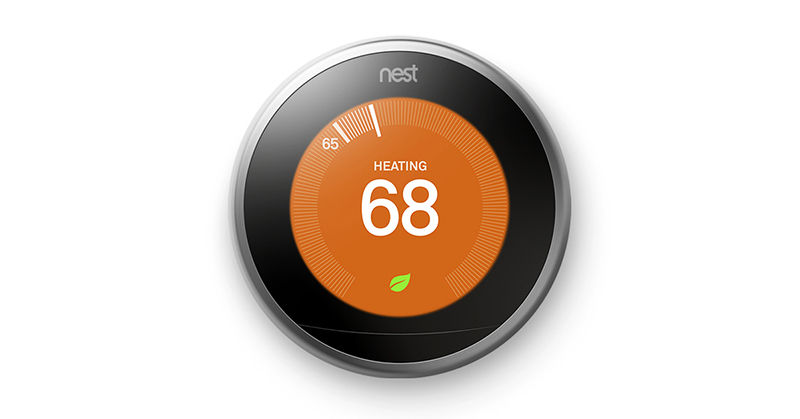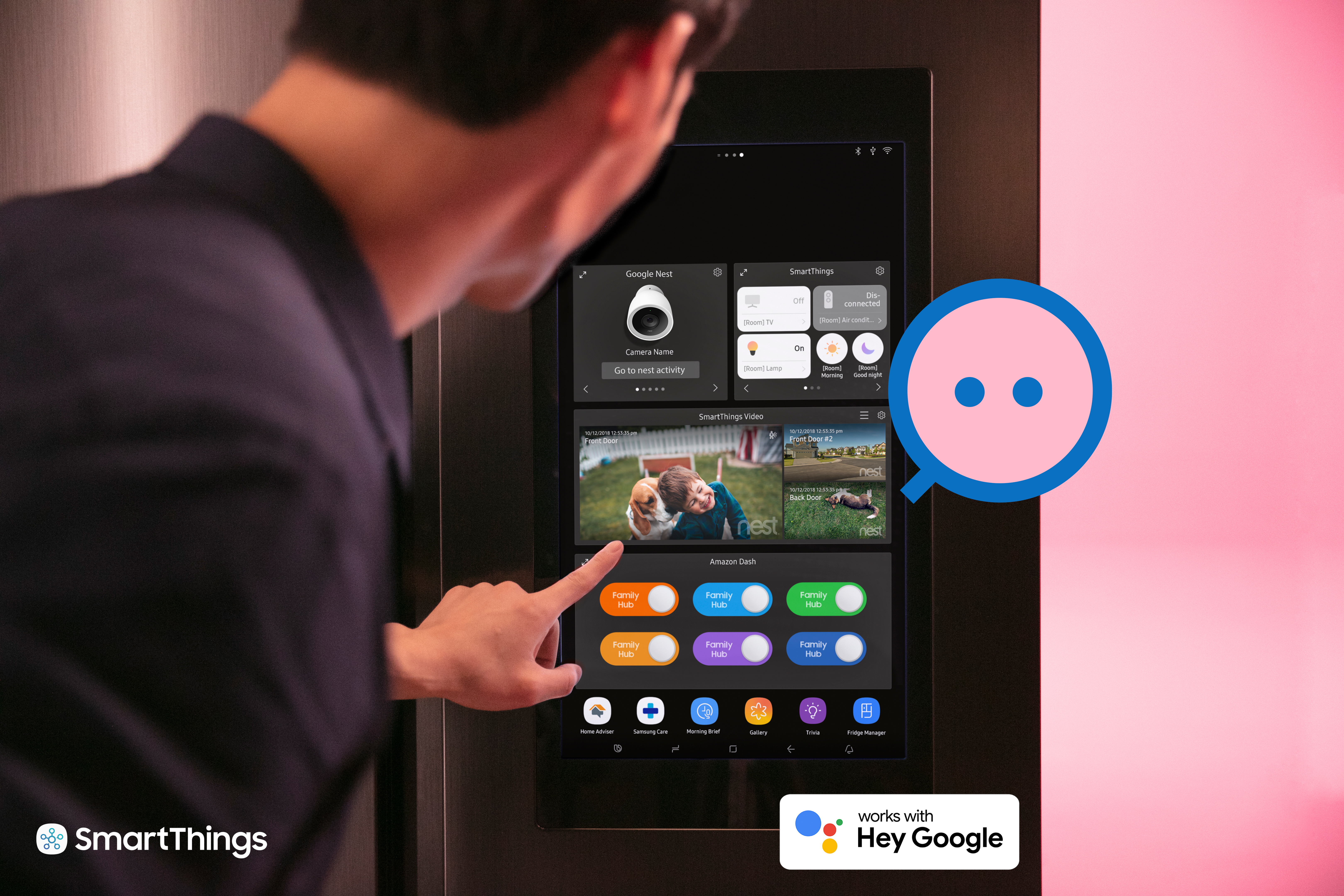Ecobee works with everything —
After killing the Works with Nest ecosystem, Google is now open to cross-compatibility.
Ron Amadeo
–

Google and Samsung want to work together on smart home compatibility. The two companies put out dueling press releases today, saying that Google Nest devices would work better with Samsung SmartThings, ending a war between the SmartThings community and Nest/Google/Alphabet that has been going on for years. Samsung says that “Google Nest devices, including thermostats, cameras and doorbells, will be “Works With SmartThings” (WWST) certified, allowing users to seamlessly control their smart homes through SmartThings.” Nest has long been the most insular smart home company, and now it sounds like Nest devices are finally going to start playing nice with your other smart home devices.
Before Samsung bought it, SmartThings started life as a Kickstarter for a smart home hub. It was designed to be a great unifier of your smart home, and that thought process still mostly survives to this day, even under Samsung. Rather than pick a side in the smart home standards war (Zwave versus Zigbee), SmartThings just packed in both radios, along with Wi-Fi, with an aim to work with everything.
Besides supporting all the radios, SmartThings is also very open on the software side of things. Samsung offers users an IDE that can run custom code on the hub itself or in SmartThings cloud infrastructure. Anyone can write a “SmartApp”—a package that offers custom logic and even custom UI in the SmartThings app—or a “device handler,” which lets anyone spin up support for new hardware. Users can load up the SmartThings Web dashboard and install whatever they want and even sync their installs to GitHub repositories for updates. You can also access your SmartThings devices outside of the official SmartThings clients through OAuth, leading to awesome third-party interfaces like the ActionTiles dashboard.
SmartThings is very open, and with a huge community, as a device manufacturer, you really have to go out of your way to stop SmartThings compatibility from happening. How powerful is the SmartThings developer ecosystem? Well, Nest support was already previously possible on SmartThings, thanks to the hard work of the SmartThings community. The app was called NST Manager (a censored version of the previous name, Nest Manager), and it would pull the Nest thermostat, camera, and smoke detectors into SmartThings, allowing for centralized control and coordination with your other smart home devices.

Samsung imagines you’ll control your Nest thermostat from your Samsung refrigerator. I don’t know about that, but having everything in a single app would be handy.
Samsung
Nest has been the complete opposite of open compared to SmartThings. As a company founded by former Apple employees, Nest has never been particularly concerned with cross-compatibility and was more focused on building a walled garden. Nest built the “Works with Nest” ecosystem, but it was never a complete smart home solution, and it never resulted in easy, open usage of Nest hardware. If we go back to the battle over NST Manager, Nest, even under Google, would break NST Manager all the time, seemingly on purpose. While the “Works with Nest” ecosystem let some companies sign up for Nest integration, the developer rules were so restrictive that NST Manager’s only workaround to get data out of the Nest hardware was to have users individually sign up to be their own “Nest Developers,” meaning they had to fill out a lengthy Web form, select the right permission, and generate a token, all so they could remotely control hardware that they purchased.
Google killed Works with Nest in 2019, which finally killed NST Manager for good, along with many other beloved Nest apps and integrations. Now, after years of acting like this, Google says it wants to play nice. “You’ll be able to access and control your Nest devices, like Nest cameras, thermostats and doorbells with the SmartThings app,” the company says. “And even Samsung smart home devices, like smart TVs and refrigerators.” That last bit sounds like Google will also be making a Tizen app for Samsung smart devices.
Google, Apple, Amazon, and Samsung are also partnered up for a future smart home ecosystem that someday, maybe, will be a real thing, called CHIP.
As a user of the Google and SmartThings ecosystem, there are a few things missing from the announcement that I would like to see. SmartThings is supporting Nest and Google, but I don’t see anything about Google reciprocating and supporting SmartThings better. Like I complained about in the Android 11 review (which included a Google Assistant-powered smart home control panel), Google’s smart home support is exclusionary toward devices that compete with Nest products. Google supports controlling SmartThings-compatible lights (and, really, every light imaginable), because Nest doesn’t make a light bulb or switch, but it doesn’t work with door locks, because Nest makes a door lock (Google and Samsung both seem to have forgotten about the Yale x Nest Lock in today’s announcement). Google’s “Nest Hub” smart display can show camera feeds, but only Nest camera feeds. The Nest exclusivity here isn’t doing Google any favors, and more open hardware support would really improve the appeal of the Nest Hub smart display.
This is definitely a departure from Google’s past behavior, but the company has done a lot of damage to its smart home users lately. Killing Works with Nest removed a lot of functionality that users rely on (and purchased hardware around), and the outcry was so loud that the company issued a half-hearted apology to users (but still killed the service). Google is also in the process of killing the Nest Secure, its $500 home security system, and it already blew up the primary music ecosystem for its smart speakers and, after weeks of downtime, replaced it with an inferior service. Since many smart home products need to be physically installed into your house, they are expected to be in service for a much longer timeframe than most tech products, and Google has been very bad at keeping services running lately. Maybe this will go a small way toward rehabbing Google’s smart home reputation.

